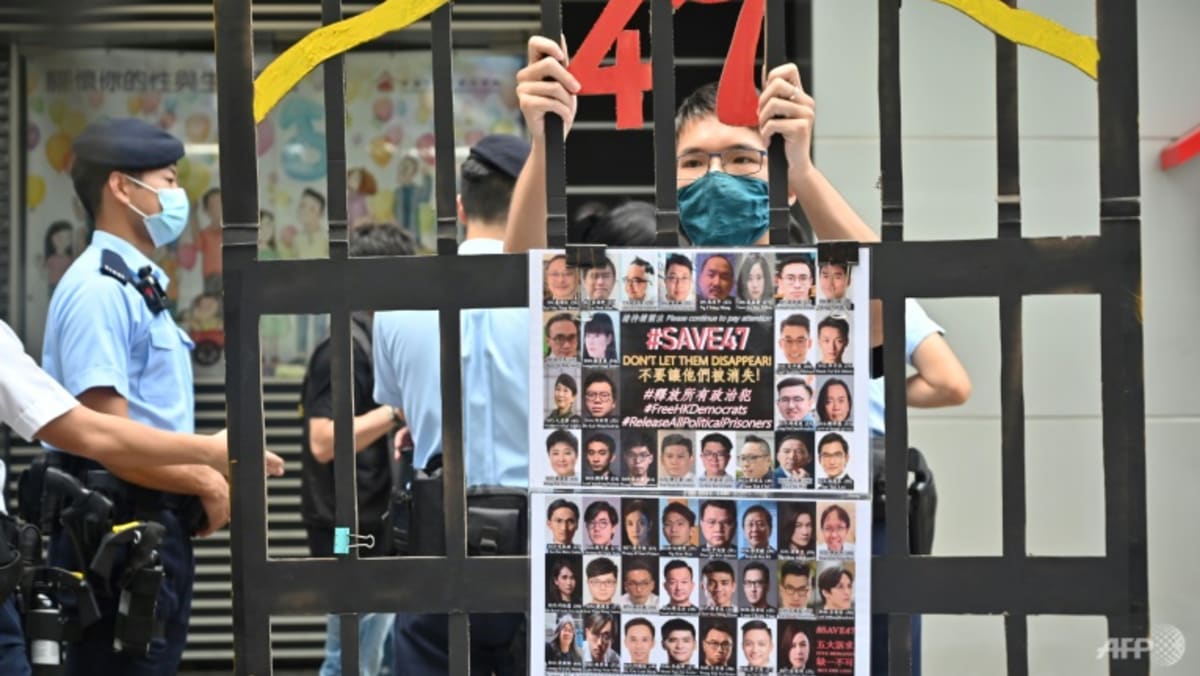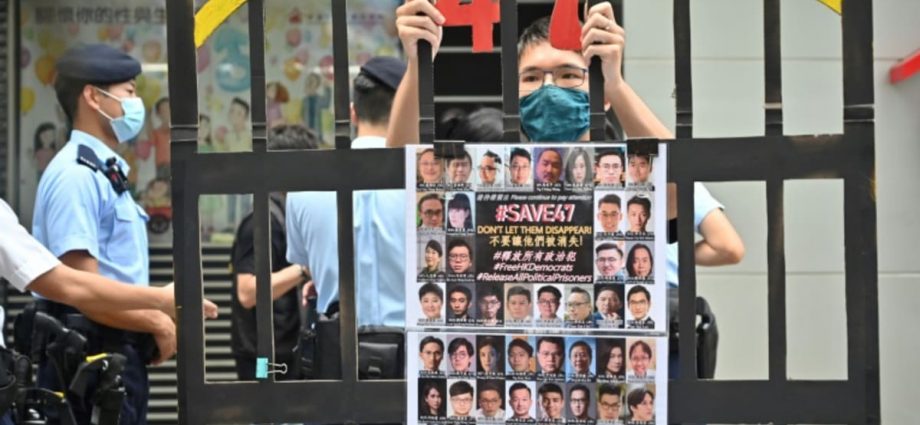
Their stated aim was to win a majority in the city’s partially elected legislature, which would allow them to veto budgets and potentially force the resignation of Hong Kong’s leader.
That vote was ultimately scrapped and Beijing installed a new political system that strictly vets who can stand for office.
The 47 were charged en masse under the national security law that China imposed in 2020, after huge and often violent pro-democracy protests.
Beijing says the law was needed to curb unrest, but critics say the crackdown on the opposition has eviscerated the city’s autonomy and political freedoms.
FAIR OR FARCE?
Dennis Kwok, a former opposition lawmaker who now lives in the United States, described the trial as “a complete farce”.
“Subversion is a crime that used to require someone who threatened to use violence … to overturn the regime,” Kwok told AFP.
“It doesn’t include people who simply run for office and pledge to use their public office to force the government to respond to the demands of the people they represent.”
Prosecutors and government supporters see the unofficial primary differently.
“I would assume if your intent is to bring down the government, then that must be unlawful,” said Ronny Tong, a veteran lawyer.
A CITY TRASFORMED
While Hong Kong has never been a democracy, it enjoyed far more freedoms than China.
The national security law has transformed the city’s political landscape as well as its common law legal traditions, refashioning Hong Kong’s courts to more closely resemble the mainland’s.
The law also empowered China’s security apparatus to operate openly in the city.
Judges who sit on national security cases are handpicked by the city’s leader and there has not yet been a trial in front of a jury.
Most of the defendants in this case – 34 out of 47 – have been jailed for almost two years. The few granted bail have to abide by strict conditions, including speech restrictions.
Legal and political analysts are watching the trial closely.
Eric Lai, at Georgetown University’s Center for Asian Law, said Hong Kongers will be paying attention to “how the prosecution defines an ordinary civil society event as a criminal act”.
Sixteen of the 47 have pleaded not guilty.
At least three will testify against their peers as prosecution witnesses, the court has been told.

